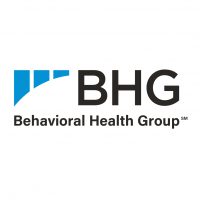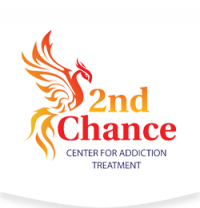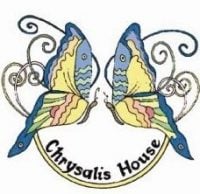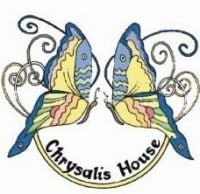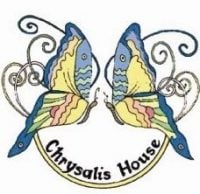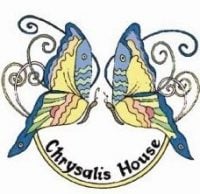LEAP
Drug Rehab Center in Lexington, Kentucky
LEAP is an addiction and recovery program in Lexington, Kentucky that provides comprehensive care services for addiction, mental health, and social functioning, including a range of behavioral treatments and supports, evidence-based therapy approaches, family services, and life-skills training to foster lasting recovery.
About This Kentucky Facility
LEAP (Lexington Addiction & Recovery Program) is located in Lexington, Kentucky and offers a comprehensive range of care services for addiction, mental health, and social functioning support. LEAP offers a variety of behavioral treatments and supports, including medical intervention and detox services, individual and group counseling, case management, and an array of therapeutic approaches. The program promotes the use of a holistic approach to the treatment of addiction and mental health, providing care that incorporates physical, psychological, social, and spiritual elements to foster lasting recovery.
At LEAP, individuals are provided with evidence-based therapy approaches such as cognitive-behavioral therapy, motivational interviewing, and dialectical behavior therapy. These approaches focus on helping individuals identify and address underlying issues, as well as work towards establishing positive behavior change. LEAP also offers comprehensive family services, which include weekly meetings for family members to learn about their loved one’s addiction, and education on how to provide effective support. In addition, the program offers life-skills training and resources to help individuals achieve lasting sobriety and live a healthier, balanced lifestyle.
LEAP is certified by The Joint Commission and licensed by the Kentucky Department of Behavioral Health and Developmental Disabilities. Additionally, LEAP is an accredited addiction and mental health provider by the National Association of Alcohol and Drug Abuse Counselors (NAADAC). The program was also recognized as one of the top treatment centers in the United States by Newsweek Magazine in 2019, and recently won the National Mental Health Alliance Award in 2020.
Genders
Ages
Modality
Additional
Accreditations
State License
SAMHSA
Conditions and Issues Treated
Substance Abuse Treatment is important when getting sober, as it helps addicts learn the skills they need to live a clean life. There are many different kinds of recovery treatment, including medication-assisted therapy, behavioral therapeutic approaches and self-help groups, as well as counseling.
Opioid abuse has become a national epidemic in the last decade. The US has one of the world’s highest rates of opioid use and abuse, as well as opioid-related deaths. Opioids are classified as Schedule II-IV controlled substances in the US due to their high potential for abuse.
Oxycodone, hydrocodone, methadone, and fentanyl are the most common Opioids and are commonly prescribed to treat pain. Tolerance to opioids develops over time, making life difficult, if not impossible, without them. Opioid users often obtain the drugs illegally. They can be drug dealers, friends, or family members who do not have valid prescriptions.
The desire for a more intense high than prescription opioids can quickly lead to heroin use. Heroin users are more prone to illness and death due to the high risk of overdose.
Many opioid addicts who seek treatment believe that the only way to overcome their addiction is through medical detox and long-term drug addiction rehab. To help patients wean off their addiction and reduce the risk of overdose, medication-assisted therapy (MAT) involves prescribing a replacement opioid. Doctors use MAT in conjunction with other anti-craving medications to help patients maintain recovery. Due to the high risk of relapse, MAT is often combined with individual and group counseling and social support programs.
Levels of Care Offered at LEAP
This center offers a variety of custom treatment tailored to individual recovery. Currently available are Aftercare Support, Drug Rehab, Intensive Outpatient, Outpatient, with additional therapies available as listed below.
Intensive outpatient treatment is a form of addiction care that allows patients to continue living at home while undergoing treatment. This type of care is appropriate for patients who have been treated in residential treatment programs. Intensive outpatient programs include regular visits to the facility providing therapy, and patients gradually return to their routine life. IOP benefits most when patients have a supportive family member or friend to help them recover.
The first step to getting into an intensive outpatient program is to attend a detoxification facility. Detoxification facilities are designed to remove substances from the body safely. The patient will attend sessions designed to help them understand their addiction and its impact on their lives. While in an intensive outpatient program, therapy sessions are scheduled three to five times per week, with the patient attending no more than two sessions in one day.
An outpatient treatment program is set up to help with alcohol or drug addiction or a co-occurring disorder. The patient must attend the facility for their therapy and other programs but can return home each night.
The frequency of mandatory attendance decreases after much of LEAP‘s program is complete.
Outpatient treatment is a recovery approach that allows recovering addicts to live at home while getting rehab for addiction
An outpatient can include day treatments which include attending group sessions one hour per week. A person living in an outpatient environment may be allowed the opportunity to work full time if they choose to and continue studies without interruption from drugs/alcohol.
Outpatient treatment is an option for people who want to maintain their careers and families. Outpatients live at home but attend treatment such as individual counseling, group counseling, or twelve-step meetings during the day.
Aftercare support is vital to the success of someone in drug or alcohol treatment. It involves assisting with entering a sober living home, getting career counseling or educational assistance and even getting the individual lined up with programs like AA and NA. This support helps recovering addicts readjust to normal day-to-day activities and maintain sobriety.
When a person is in drug or alcohol treatment, they have to increase their focus on themselves. They need to learn how to recognize the triggers that cause them to relapse and learn the habits that would benefit them if they were to be sober. This is all part of the growth in recovery, and aftercare is essential to that process.
Therapies & Programs
At LEAP , to learn from past mistakes and improve one’s situation, the recovering person meets individually with a therapist. The counselor or therapist will address addiction causes, triggers, mental issues, dual diagnosis, and aftercare plans during this time. This is a very intense and challenging process. Some clients find it easier to open up to someone other than family or friends who understand their struggles with addiction.
In group therapy, recovering addicts meet with a therapist and other people in recovery. Some groups are closed, meaning only people who share the same addiction or problem can attend. Others are open to anyone who wants to stop using drugs or drinking alcohol. Group therapy sessions typically focus on one topic each week or month so that recovering addicts can discuss issues they face daily.
Dialectical Behavior Therapy (DBT) is a type of therapy created in the late 1980s and early 1990s. It was designed to help people with high rates of suicidal behavior.
The goal of DBT is to teach mindfulness, distress tolerance, emotion regulation, and interpersonal effectiveness to help people learn how to live a life that is no longer controlled by overwhelming emotions and urges.
DBT is beneficial in treating drug addiction because it helps patients understand and cope with their cravings for drugs or alcohol rather than turning to those substances as a way of coping.
Cognitive Behavioral Therapy (CBT) is based on the idea that how we feel, think and act all interact together. It helps people explore their thoughts for problems (or false beliefs) that influence their mood and actions. CBT is very goal-oriented, which means that the therapist and patient work together on a specific problem. In addition to helping a client focus on thoughts that can be changed, CBT also allows them to take an active role in their treatment. Our thoughts determine our feelings and behaviors; our feelings affect our thoughts, and our behaviors change our thoughts and feelings.
Payment Options Accepted
For specific insurance or payment methods please contact us.
Additional Details
Specifics, location, and helpful extra information.
Lexington, Kentucky 40517 Phone Number(859) 263-2700 Meta DetailsUpdated November 25, 2023
Staff Verified
Patient Reviews
There are no reviews yet. Be the first one to write one.
Lexington, Kentucky Addiction Information
Kentucky ranks among the top ten states for opioid-related overdoses. Most of these are due to heroin, fentanyl, and prescription opioid use. A little over 11% of the Kentucky population abuses alcohol in a given year. More than 15% of Kentucky adults admit to participating in binge drinking every month.
Lexington, Kentucky has a moderate drug addiction and abuse problem. 6.7% of Lexington residents over the age of 12 abused drugs in 2014. The most commonly abused substances were alcohol, followed by cocaine, and heroin. In Lexington, there were 1,013 drug-related emergency room visits in 2016. The most important thing to remember when looking for drug rehab is that every individual is different and will require a different approach to treatment.
Treatment in Nearby Cities
- Versailles, KY (12.5 mi.)
- Brooksville, KY (53.8 mi.)
- Asheville, KY (58.7 mi.)
- Hazard, KY (88.6 mi.)
- Hardinsburg, KY (107.2 mi.)
Centers near LEAP
The facility name, logo and brand are the property and registered trademarks of LEAP, and are being used for identification and informational purposes only. Use of these names, logos and brands shall not imply endorsement. RehabNow.org is not affiliated with or sponsored by LEAP.




